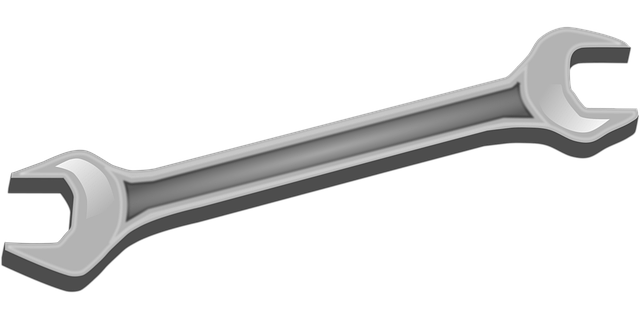Long-term chiropractic rehabilitation after car accidents offers a holistic approach to managing lasting injuries and chronic pain, focusing on spine and joint care, exercise, education, and stress management. Chiropractors create personalized recovery programs considering injury severity, pre-existing conditions, and lifestyle, providing adjustments, targeted exercises, and emotional support for optimal long-term outcomes and improved quality of life.
Long-term chiropractic rehabilitation plays a crucial role in helping individuals recover from injuries sustained in car accidents. This specialized care extends beyond initial treatments, focusing on comprehensive programs tailored to address specific needs. Understanding the intricacies of post-injury recovery is essential for optimal health outcomes.
This article explores effective strategies, including the role of chiropractic adjustments and exercises, in managing long-term injuries from car wrecks. By designing personalized recovery plans, healthcare professionals foster a successful transition back to active living.
- Understanding Long-Term Chiropractic Rehabilitation
- The Role of Chiropractic Care After a Car Wreck
- Designing a Comprehensive Post-Injury Recovery Program
Understanding Long-Term Chiropractic Rehabilitation

Many individuals involved in car accidents often face lengthy recovery processes, and long-term chiropractic rehabilitation plays a pivotal role in their journey back to health. This specialized program extends beyond initial adjustments and focuses on comprehensive care for those with persistent injuries or chronic pain stemming from vehicular collisions. The primary goal is to restore function, reduce pain, and improve overall quality of life over an extended period.
Chiropractic rehabilitation after car wrecks involves a tailored approach, addressing specific spine and joint issues that may have resulted from the accident. It often includes manual therapy, exercise routines, and education on posture and injury prevention. This holistic process enables patients to regain mobility, strengthen supporting muscles, and develop strategies for managing ongoing discomfort or disabilities associated with the trauma.
The Role of Chiropractic Care After a Car Wreck

After a car wreck, many individuals suffer from injuries that can have long-lasting effects on their lives. Chiropractic care plays a crucial role in the recovery process for these patients. It is particularly effective as a long-term chiropractic rehabilitation method after car accidents due to its non-invasive nature and focus on the spine and nervous system. Chiropractors utilize various techniques such as manual adjustments, targeted exercises, and lifestyle recommendations to help restore proper alignment and function of the spine, which in turn supports the recovery of other injured areas.
Chiropractic rehabilitation programs offer a holistic approach to healing by addressing not only the physical symptoms but also considering factors like stress management and patient education. This comprehensive strategy ensures that individuals involved in car wrecks can make informed decisions about their health and well-being post-accident, promoting better long-term outcomes and improved quality of life.
Designing a Comprehensive Post-Injury Recovery Program

Designing a comprehensive post-injury recovery program is essential for optimal long-term chiropractic rehabilitation after car wrecks. This involves tailoring a unique plan that addresses not only the physical aspects of healing but also psychological and social factors. Chiropractors should assess each patient’s individual needs, considering the severity of the injury, pre-existing conditions, and personal lifestyle. A robust program may include adjustments to the spine, targeted exercises for strength and flexibility, as well as stress management techniques to aid in emotional recovery.
The key lies in creating a structured yet flexible framework that evolves with the patient’s progress. Regular check-ins and reevaluations allow chiropractors to adjust treatments, ensuring they remain effective and relevant as the patient progresses through different phases of healing. Incorporating education on injury prevention, healthy lifestyle choices, and techniques for self-care empowers individuals to take an active role in their recovery journey, fostering a deeper sense of control and well-being.
Long-term chiropractic rehabilitation after car wrecks plays a vital role in restoring physical health and well-being. By understanding the specific needs of each patient and designing comprehensive post-injury recovery programs, chiropractors can effectively navigate the complexities of long-term care. Integrating these strategies ensures folks receive the best possible outcomes and a higher quality of life following their accidents.














